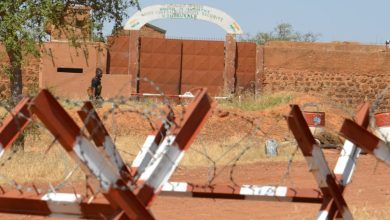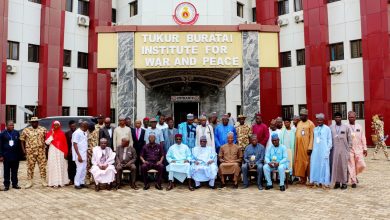The Emergence of a Military Junta’s Alliance in the Sahel: Ramifications for ECOWAS

Junta-led Mali, Burkina Faso and Niger have ditched the G5 anti-jihadist force. Security experts say their intended new confederation to tackle Islamist insurgents in the Sahel is bound to fail unless they mend ties with ECOWAS.
The Sahel, a region stretching across Africa from the Atlantic Ocean to the Red Sea, has long grappled with multifaceted challenges—political instability, armed conflict, terrorism, and economic hardships. In recent times, a new development has surfaced within this complex landscape: the formation of an alliance among military juntas in some Sahelian nations, sparking concerns and ramifications for regional bodies like the Economic Community of West African States (ECOWAS).
The Sahel has been a hotspot for various insurgencies and terrorist groups, including Boko Haram, Al-Qaeda in the Islamic Maghreb (AQIM), and the Islamic State in the Greater Sahara (ISGS). These groups have exploited governance vacuums, porous borders, and socio-economic vulnerabilities to thrive. In response to these challenges, some countries in the region have experienced military coups, leading to the rise of military-led governments.
This trend has led to an interesting shift in dynamics, as military leaders from Mali, Niger, Chad, and Burkina Faso have sought closer ties and cooperation. The establishment of this junta alliance appears to be aimed at addressing common security concerns, enhancing stability, and consolidating power. However, such consolidation raises critical questions about the implications for regional organizations like ECOWAS.
ECOWAS, a regional bloc established to promote economic integration and political cooperation among West African nations, has historically opposed unconstitutional changes of government. The bloc has a strong stance against military takeovers, often imposing sanctions and diplomatic pressure to restore constitutional order in member states experiencing coups. The recent alliance among Sahelian military juntas poses a challenge to ECOWAS’s commitment to upholding democratic governance and stability in the region.

Niger, Mali, and Burkina Faso share common security challenges, particularly regarding terrorism, insurgency, and organized crime. A federated approach might offer enhanced security cooperation, enabling more efficient joint efforts to combat these threats. However, it could also raise concerns about the potential spillover effect of insecurity from one member to the entire federation in any attempt to jettison the role of ECOWAS in the Sahel.
The emergence of this military junta alliance presents a dilemma for ECOWAS. On one hand, the alliance might potentially contribute to enhanced security cooperation and joint efforts against terrorism, which are critical in a region plagued by instability. On the other hand, legitimizing or engaging with military-led governments contradicts ECOWAS’s principles and norms, potentially undermining its authority and democratic ideals.
Moreover, the junta alliance in the Sahel raises concerns about power dynamics within ECOWAS itself. Will member states align their interests with this emerging bloc of military leaders, potentially diluting ECOWAS’s unified stance against coups? Will ECOWAS adapt its strategies to engage with these new power structures in the Sahel while maintaining its commitment to democratic governance?
The ramifications of this military junta’s alliance in the Sahel extend beyond security concerns. They delve into broader regional dynamics, including economic integration, political stability, and the legitimacy of governance structures. ECOWAS faces the challenge of balancing its response to the Sahel’s evolving political landscape while upholding its core principles and maintaining its authority in the region.
In conclusion, the emergence of an alliance among military juntas in the Sahel raises significant implications for ECOWAS. The delicate balance between security imperatives and democratic values will test the regional bloc’s resilience and ability to navigate complex political terrains. How ECOWAS chooses to engage with this new junta alliance will undoubtedly shape the future of governance, stability, and democracy in the Sahel and the broader West African region.
Mr Fredrick
OSINT Analyst Defencetimesng





